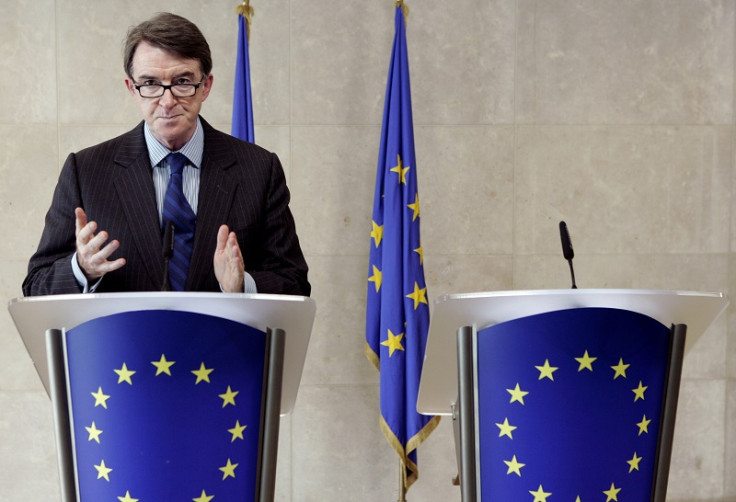Lord Mandelson: EU Referendum 'Lottery' is not what British Public Want

Lord Mandelson has come out against a possible referendum on Britain's membership of the European Union, comparing it to a "lottery".
Mandelson, a Labour Party grandee and a former European Commissioner for Trade, argued that "reform and change" in Europe is what the British public want and that "in effect threatening Europe" will diminish the country's chances of getting what it wants in reform negations.
The 60-year-old, who was seen as one of Tony Blair's most influential advisors, told BBC Radio 4 that membership of the EU is "fundamental to the interests" of Britain.
Mandelson also described a potential referendum as a "very blunt instrument" and compared it to a "lottery whose outcome is affected by all sorts of factors"
He added: "[The Labour Party] want to drive reform and change in Europe, not drive Britain out of the EU."
The politician's comments come ahead of a debate in the House of Lords over a bill that would allow a referendum on the UK's membership of the EU in 2017.
Prime Minister David Cameron has pledged to hold a vote on the question, if the Conservative Party win the 2015 General Election. But backbench Tory MP James Wharton – who tabled the bill – wants the promise to be written into law.
The bill got through the House of Commons late last year, despite opposition from Labour and Liberal Democrat MPs.
The debate comes after Cameron introduced measures which made it harder for EU migrants to access benefits in the UK.
Cameron brought forward plans to tighten the country's welfare system for EU migrants as restrictions were lifted on Romanian and Bulgarian workers.
Now EU citizens must have lived in the UK for three months before they can claim out-of-work benefits, compared to several weeks as it stood before.
Benefits will also be removed from EU jobseekers who have "no job prospects", said the government, and there will be a year-long re-entry ban for deported migrants who could not find work.
© Copyright IBTimes 2025. All rights reserved.






















